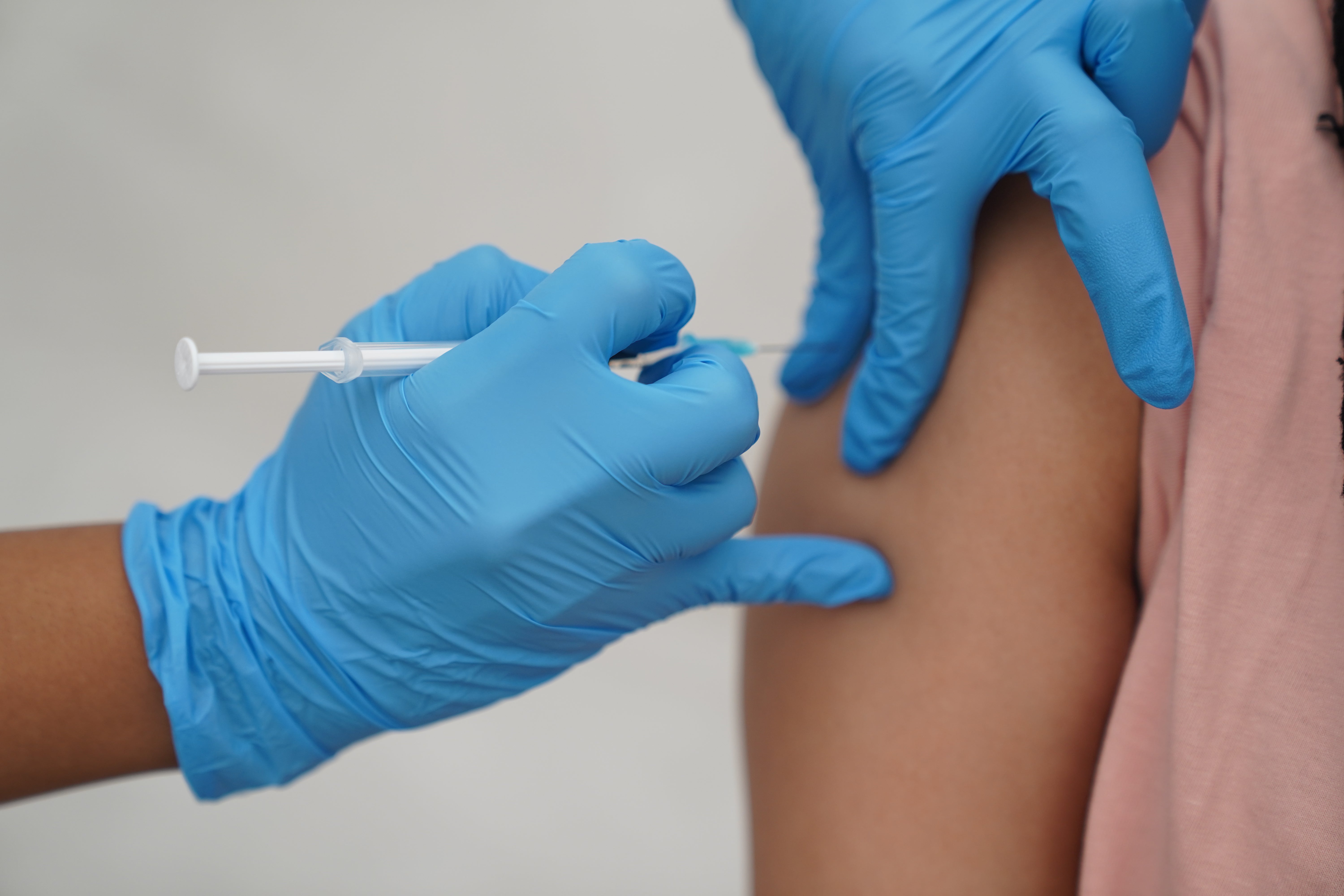More than half of adults in some of England’s biggest cities not boosted – NHS
It comes as the Government allocated £22.5 million to fund an army of vaccine volunteers to improve take-up in harder-to-reach communities.

More than half of all adults in some of the biggest cities in England have still not received a booster or third dose of Covid-19 vaccine, figures suggest.
Take-up of the extra dose of vaccine among all people aged 18 and over is estimated at 45.9% in Nottingham, 48.0% in Manchester and 48.7% in Birmingham.
Other cities are only just over 50%, such as Liverpool (51.6%) and Leicester (53.5%).
The figures, compiled by the PA news agency from NHS England data, cover vaccinations delivered up to January 9.
They also suggest that Newham in London is the local authority in England with the lowest take-up of booster and third doses among all adults (41.3%), followed by the London boroughs of Barking & Dagenham (41.5%), Westminster (42.2%) and Tower Hamlets (42.6%).
The local authority with the highest estimated take-up is Stratford-on-Avon in Warwickshire (84.7% of all adults), followed by Hart in Hampshire (just under 84.7%) and Cotswold in Gloucestershire (84.4%).
The vaccine rollout has successfully reached tens of millions of people, with a ramping up of the booster programme in recent weeks in response to the surge of Omicron cases.
However, more than four million people aged 18 and over are estimated to have not received had a first dose, while around six million are not double-jabbed and 17 million have not had a booster or third dose.
There are multiple reasons for people not getting vaccinated, including them questioning whether it is necessary, safe or effective, concerns about side-effects, complacency due to lower perceptions of personal risk, historic distrust of some public services, and misinformation.
Some people will have valid medical exemptions, and those who have recently contracted coronavirus will be unable to get a booster until 28 days after their positive test.
It comes as the Government allocated £22.5 million to fund an army of vaccine volunteers to improve take-up in harder-to-reach communities.
A share has been allocated to 60 local authorities with the lowest vaccine uptake to help them identify barriers to accessing accurate information, and provide tailored support.
More than £10 million is going to London boroughs.
Booster take-up in the capital is at 54.2%.
In Newham, roving vaccinators and a vaccine bus will visit workplaces, places of worship and local high streets.
Others initiatives being considered are developing a community transport scheme to vaccine sites in Reading, and a “Grab A Jab” taxi scheme.
Communities Minister Kemi Badenoch said there has been “great take-up” of boosters so far, but more must be done.
She said: “By funding Community Vaccine Champions, an army of volunteers who are at the heart of their communities, we can reach those yet to be vaccinated and encourage them to protect themselves and the NHS.”
The offer of a vaccine will always be available, it’s not too late. Please come forward as soon as you can so we can learn to live with this virus
Vaccines Minister Maggie Throup said: “We are doing everything we can to reach those who haven’t yet come forward for their jabs and we know some people are more likely to listen to those they trust, such as community and religious leaders, that’s why we are giving extra funding to our brilliant Community Champions.
“The offer of a vaccine will always be available, it’s not too late.
“Please come forward as soon as you can so we can learn to live with this virus.”
A spokeswoman for Tower Hamlets, where booster take-up is at less than 50%, said the borough has the lowest proportion of adults aged 65 and over in the country.
She said: “As older age groups have received vaccinations first throughout each stage of the vaccine programme, it has been expected that we would have a lower proportion of people vaccinated overall than the national average.”
The spokeswoman said the borough has been continually engaging with its diverse communities, is delivering walk-in and pre-booked vaccines through pharmacies, primary care centres and mosques, and has local Covid-18 champions on the ground.
Subscribe to Independent Premium to bookmark this article
Want to bookmark your favourite articles and stories to read or reference later? Start your Independent Premium subscription today.
